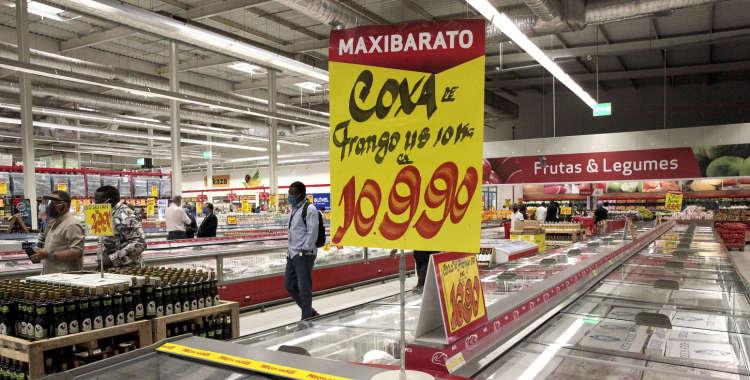According to the document, the main goods that contributed to this reduction were palm oil (79.8 percent), cooking oil (67.1 percent), chicken thighs (34.3 percent) and rice (8.4 percent).
According to the Minister of State for Economic Coordination, José de Lima Massano, who presented the results on food security and national production, in addition to other goods, sugar imports also fell by 56 percent in the period under analysis.
“We have seen a sharp drop in the variation of the monthly consumer price index. Therefore, in the last three months, the drop has continued, prices have risen at a slower pace, which is the result of a greater supply, especially of national products. As we have seen, on the import side, we continue to see their substitution”, he stressed.
Regarding the impact on the foreign exchange market, José de Lima Massano stated that the reduction in food imports in 2023 generated direct savings of around 940 million dollars.
With a view to increasing food and nutritional security levels, the Government is developing initiatives that will allow around 1.2 million families to receive technical support to increase productivity levels, supported by around seven thousand field schools, the Government said in a statement.
In this context, 400 small-scale producers in the business sector were supported under the Commercial Agriculture Development Programme in the provinces of Cuanza Sul, Cuanza Norte, Huambo, Bié, Huíla and Malanje, in addition to the reformulation of agrarian institutes with support from the European Union.
The document also reveals that, for the 2024/2025 Agricultural Campaign, the Executive will make available around 200 thousand tons of fertilizers, of which a batch of 41 thousand have already been purchased, as well as 12 thousand tons of seeds for programs to support family farming.
In turn, the Agricultural Development Support Fund (FADA) is making around two thousand motor cultivators or traction equipment available to cooperatives on a credit basis.
At this time, said José de Lima Massano, the Agricultural Campaign Credit is available through commercial banks and the sovereign guarantee mechanism to support national production has already been regulated.
The Government expects overall growth in the agricultural sector of 8.3 percent in the 2024/2025 cycle, allowing the goal of reducing food insecurity to be accelerated, which should affect less than 21 percent of the population by the end of the five-year period.
The Minister of State for Economic Coordination stated that the milling industry has shown some strength, with emphasis on the production of cereal derivatives.
“Soybean oil has seen a very sharp growth of 151 percent. Therefore, we have stopped importing the final product on a large scale,” he stressed.
The Gross Domestic Product (GDP) in the first half of this year recorded growth that reveals a trajectory of greater dynamism in the economy, boosted by the agricultural sector.
The minister also stated that the GDP continues to grow, with growth of 6.2 percent in the fourth quarter of last year and 4.6 percent in the first quarter of 2024.
Regarding livestock production, according to the 2023 results, the country has a domestic coverage rate of 99.9 percent for goat meat, 84.3 percent for beef, 26.4 percent for pork and 18.2 percent for chicken.
In the fisheries sector, the domestic production coverage rate stood at 102.7 percent.







